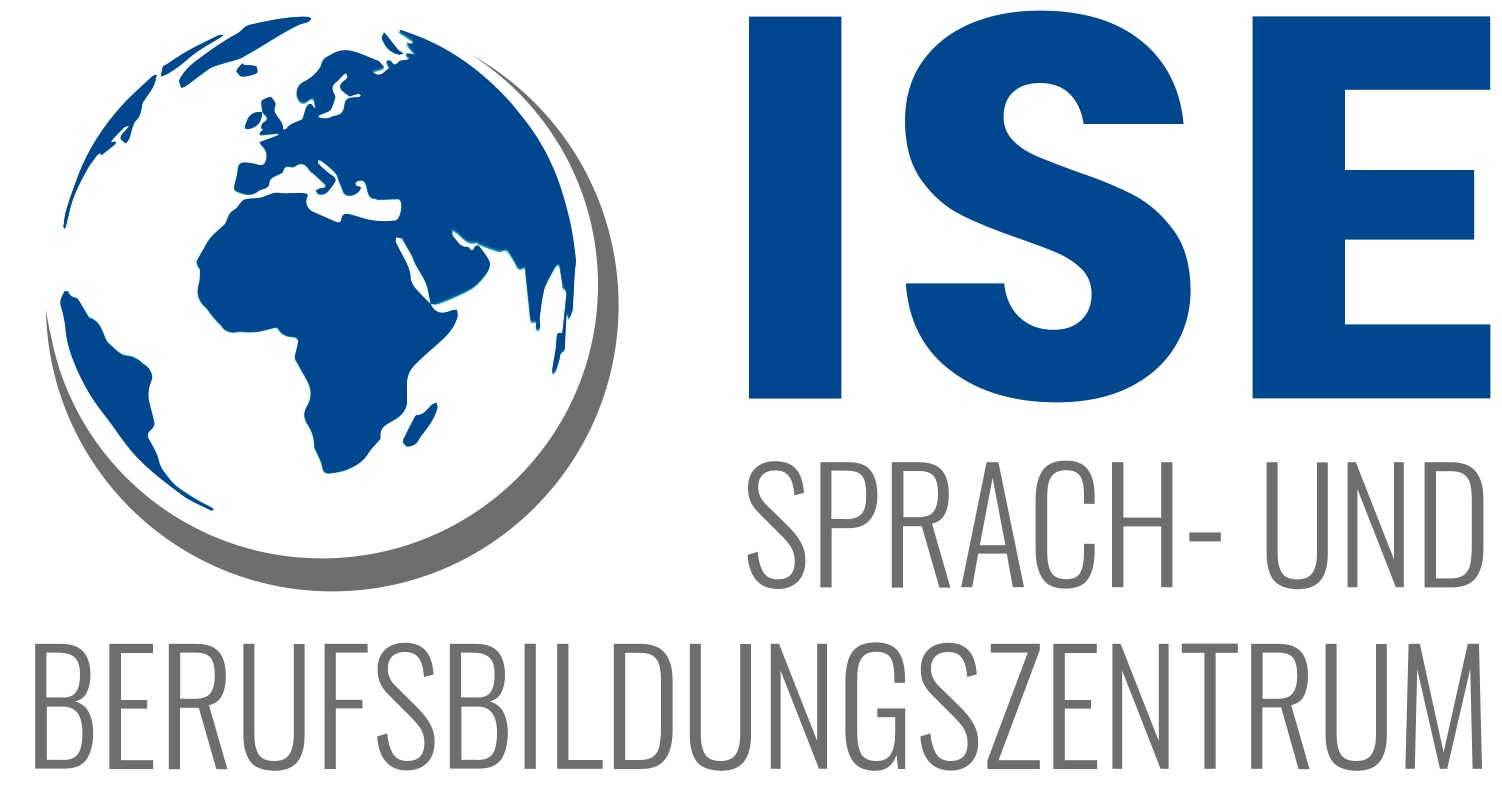 A qualification with future prospects
A qualification with future prospects
The ISE language and vocational training center has been offering partial qualifications in the training occupation of warehouse logistics specialist since 2011, which include the most important qualification modules of the above. profession included. If participants are interested in acquiring the remaining training content after this qualification, there is the possibility of obtaining admission to the so-called external examination before the IHK Regensburg. This gives you the opportunity to subsequently complete vocational training in a recognized training occupation.
Graduates of the above-mentioned qualification in the warehouse logistics sector work in logistics centers, industrial companies, freight forwarding companies and in the mail order business. They help with inventory turnover, store and retrieve goods professionally, pick and optimize the internal flow of materials, information and values.
Qualified warehouse and logistics specialists now have good career opportunities. Since a low error rate or the implementation of total quality management is required as a business objective, many entrepreneurs feel obliged to hire skilled workers instead of unskilled workers.
People with specialist knowledge in the warehouse and logistics sector are currently urgently needed in the economy.
Training content:
Forklift training
Practical days at Loxxess
Internship 3 months (2 x 6 weeks)
Vocational training, labor and collective bargaining law
a) Explain the meaning of the training contract, in particular its conclusion, duration and termination
b) name mutual rights and obligations from the training contract
c) name essential parts of the employment contract
d) name essential provisions of the collective agreements applicable to the training company
e) State opportunities for further professional training
Safety and health protection at work
a) Identify threats to safety and health at work and take measures to avoid them
b) apply job-related occupational safety and accident prevention regulations
c) Describe behavior in the event of an accident and initiate initial measures
d) apply preventive fire protection regulations; Describe fire behavior and take fire-fighting measures
work organization; information and communication
a) Implement work orders into work processes according to operational specifications; Execute work orders in a customer-oriented manner
b) use operational information and communication systems taking into account application-related networking as well as data security and data protection
c) Use standard software and workplace-related software
d) use foreign language technical terms, process foreign language forms, communicate in a subject-specific manner
logistical processes; quality assurance measures
a) Distinguish and handle goods according to their nature and use
b) Observe standards, dimensions, quantity and weight units
c) apply legal and operational regulations for goods-specific storage
d) Handle goods, in particular dangerous goods, dangerous working materials, customs goods, perishable goods, according to their properties and taking into account labels and symbols
e) apply legal and operational regulations for packaging and transport
f) Ensure information and material flow as part of the logistical process
g) participate in logistical planning and organizational processes
h) Take into account the networking of logistical functions and contribute to improving collaboration at the interfaces
i) Coordinate and carry out handling tasks within the framework of the logistical concept in terms of their timing and technical sequence
k) Identify deviations in logistical processes and contribute to their elimination
l) contribute to improvements in logistical and data-supported processes
m) carry out quality assurance measures in your own work area, thereby contributing to the continuous improvement of work processes
n) participate in the processing of complaints
Use of work equipment
a) Select and use work equipment for weighing, measuring and counting
b) Use work and funding resources
c) plan the use of work and funding from economic and ecological aspects
d) Maintain work and funding equipment and check their functionality and readiness for use; Arrange for the removal of impairments
Acceptance of goods
a) Check accompanying documents and take into account customs and dangerous goods regulations and operational specifications for accuracy and completeness
b) unloading goods
c) carry out quantitative and qualitative goods inspections, record input data and create error protocols) and arrange for defects to be rectified
e) Carry out and document the return of empties, packaging and loading aids in accordance with legal and operational requirements
f) Deliver goods to their destination
Storage of goods
a) Label and sort goods, form storage and sales units and prepare goods for storage
b) Store goods in compliance with storage regulations
c) Carry out measures to maintain quality and value
d) Check inventory levels and make corrections
e) Calculate, evaluate and document warehouse key figures
Picking and packing of goods
a) Check order documents and prepare picking
b) Remove goods from the warehouse taking into account the removal principles and document changes in inventory
c) Arrange loading and transport equipment
d) Select transport packaging and filling materials with regard to the type of goods, mode of transport, environmental compatibility and economic viability
e) Assemble and pack goods into loading units
f) check assembled shipments and accompanying documents for completeness, mark, label and secure transport goods
Shipping of goods
a) Prepare shipments ready for loading for specified means of transport
b) Determine the weight and space requirements of goodsc) Create loading lists and loading plans taking into account the loading regulations
d) Load and stow shipments according to the characteristics of the goods and the means of transport
e) Secure loads and apply locking regulations
f) Process shipping and accompanying documents; Observe foreign trade regulations
g) participate in the creation of the tour plan
Entry requirements
In consultation with the Federal Employment Agency, potential course participants must pass an aptitude test at the ISE in order to be allowed to take part in the retraining. Please contact the ISE administration at Schloßgraben 2 in Amberg (Tel. 09621/7868-0) for dates for the aptitude test and other entry requirements.
Important information
- Type of measure: FBW
- Course location: ISE Language and Vocational Training Center, Kaiser-Ludwig-Ring 9, 92224 Amberg
- Duration / dates:
upon request (in planning phase)
– including approx. 8 months of specialist theory with practical days
– including approx. 3 months of internship (2 x 6 weeks)
– including approx. 4 weeks of vacation
– including forklift training
- Lessons: Monday – Friday from 8:00 a.m. to 3:15 p.m
- Class/examination location: ISE training facility
- Funding options: if you are personally qualified, you can receive an educational voucher from the employment agency/job center and WeGebAU
- Number of participants: minimum 14, maximum 20
- Contact person: Mr. Peter Blendowski, Mr. Roland Domogalla, Mr. Richard Kirschner
- Information and registration: ISE, Schloßgraben 2, 92224 Amberg or ISE, Kaiser-Ludwig-Ring 9, 92224 Amberg
Tel. 09621/7868-0 or Tel. 09621/916086-0

